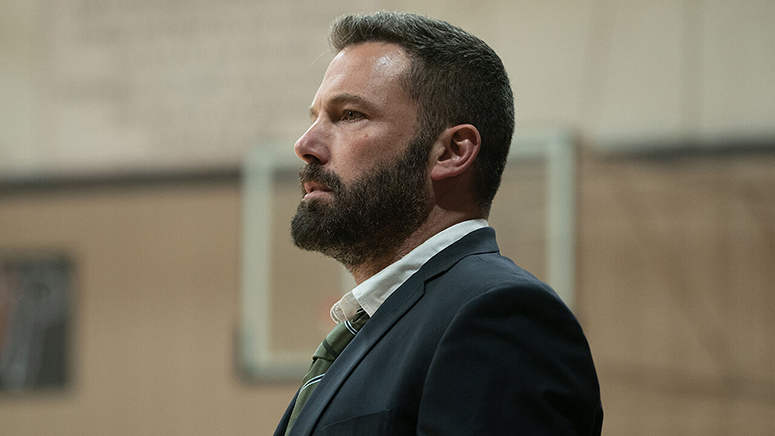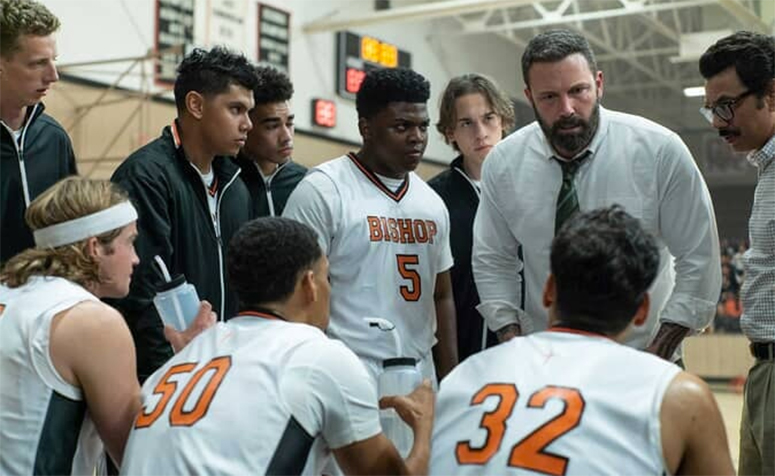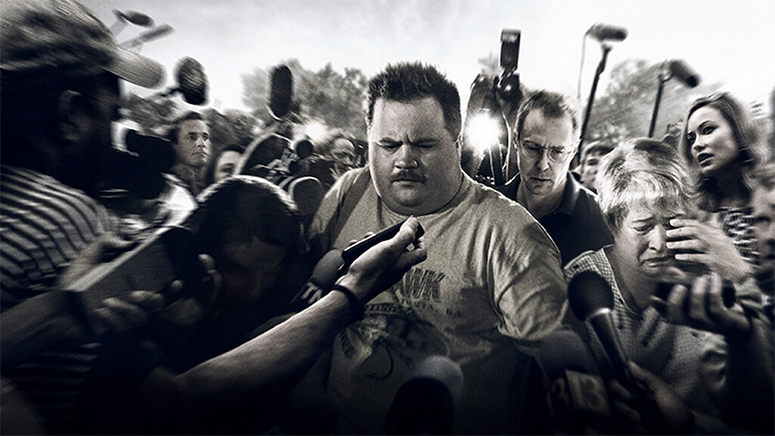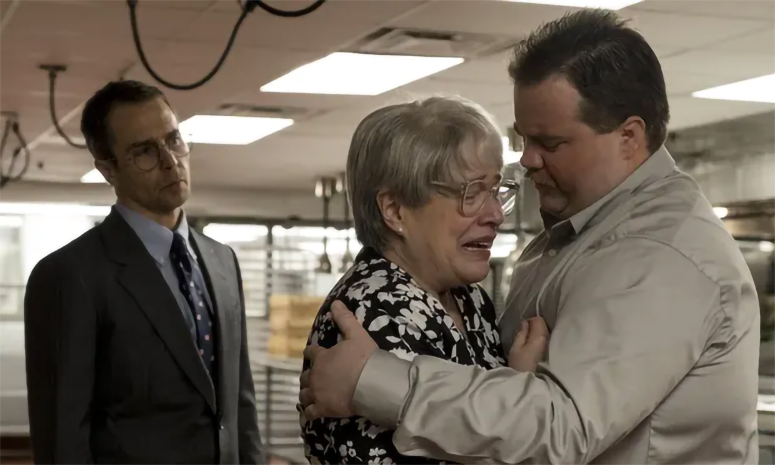Movies about men even women can learn from
For a change, I watched in succession on Netflix movies that focused on the life stories of men, one fictional, one true-to-life.
The first was The Way Back, a movie about an alcoholic construction worker (portrayed by Ben Affleck as Jack Cunningham), once the star basketball player of his high school team, and his struggle to find his “way back.”
Affleck as Jack is deglamorized, far from the debonaire figure he cut in Armageddon or even Pearl Harbor. Certainly not JLo’s type of guy.

He’s overweight — physically and with the weight of personal issues on his broad shoulders.
The road to redemption is given him by Fr. Devine, head of Bishop Hayes, Jack’s alma mater, who implores him to coach the school’s lackluster basketball team. Jack, who is separated from his wife Angela, doesn’t immediately accept the offer. It’s out of his comfort zone. He’s happy with his routine. Work, bar, home. Repeat. In all three places, he drinks.
But somehow he gives it a try and it seems that in rehabilitating the team, he is also rehabilitating himself. You ask:Who is coaching whom?
Indeed, sometimes, in helping others get out of a rut, we are also freeing ourselves from the morass on which our boots are stuck. In helping others see the light, we are inadvertently also shining the light on ourselves and at the end of the tunnel ahead of all of us.
So proud of this one and the incredible team behind it. Here’s your first look at #TheWayBack, a story of endurance and redemption. In theaters this March. pic.twitter.com/uqbdHhTIGh
— Ben Affleck (@BenAffleck) November 14, 2019
There is a thing or two to learn from Coach Jack and the other players in the movie. I may not get the words exactly as they were uttered, but here goes:
1. “You want to know why they’re leaving you open? It’s because they don’t think you can hit the ocean from the beach.” Sometimes when people let you have it easy, it’s not because they like you. It’s because they underestimate you. Don’t be misled when people give you kindergarten responsibilities.
2. “You’re nervous. I get it. Truth is, they’re more talented than you. Probably got a better coach. But I promise you, they are not a better team. Because they haven’t been through what we’ve been through. They don’t know adversity. They don’t know what it’s like to get knocked down and have to get back up again. They don’t know what it is to fight.”
3. “Sometimes a smart play is not the right play… The game’s on the line, a hundred times out of a hundred I want you taking that shot.” True. Improvise. Listen to your gut and what it is telling you right there and then as you aim for a three-pointer, make a judgement call during a crisis, make a decision to ask forgiveness or say goodbye. It might not sound smart, but listen to the organ in your body that speaks to you the loudest at the moment. Then take that shot.
4. “If we’re going to keep winning games, we got to make our lack of size an advantage.” Turn your perceived liability into an asset.

5. “We got to play with chips on our shoulders.” According to the Oxford dictionary, a “chip on one’s shoulder” means “a deeply ingrained grievance or feeling of resentment, often deriving from a sense of inferiority and marked by aggressive behavior. According to online sources, the saying originated during the 19th century in the United States, “where people wanting a physical fight would carry a chip of wood on their shoulder, daring others to knock it off.” You got to play with hugot. For me, ang may pinanghuhugutan ay may pinanghugutang lakas sa parehong balon. That was original, mind you.
While it is true that the past is the prologue to the story of our lives, our present is happening now. And our story isn’t complete yet.
6. “The little things add up. Let’s do all the little things right.” I remember my late mentor, STAR founding chairman Betty Go-Belmonte. In the days before spellcheck, she was extra strict about proofreading, she put as much value in a meticulously proofread copy as she did in its majesty. She believed that no matter how arresting one’s copy was, one wrong punctuation mark, one misspelled word, could shred its beauty. They all add up.
7. “Take that shot.” I remember this random quote from somewhere: “Aim high but don’t forget to pull the trigger.”
8. “We can’t change the past. What we can do is change how we move forward.” While it is true that the past is the prologue to the story of our lives, our present is happening now. And our story isn’t complete yet. While we cannot alter even the hour just past, the next hour, the next day, is a blank page, a blank slate, a clear sky, a goal that is wide open. Just move forward. As one North Korean officer said to the dashing Capt. Ri (Hyun Bin) in Crash Landing on You: “There is a reason your eyes are on your face, not behind your head.”
Does Jack connect with his goal? My lips are sealed.
‘Jewell’ of a story
Another movie whose central figure is a man is the Clint Eastwood-directed film, Richard Jewell, based on true events surrounding the alleged Atlanta bomber in the 1996 Olympics in the city. It is a gem of a story about not jumping to conclusions. It shows the power of media to make or break a man.
Jewell (portrayed byPaul Walter Hauser), a security guard who reported the presence of the bomb in Centennial Park and helped clear the area of people before the bomb detonated, was, in a twist of fate, later the main suspect.

A certain reporter known for her scoops and her connections, elicited from a reliable source that Jewell, who fit a certain the stereotype, was the suspect. It was all over the papers the next day.
His mother Bobi (portrayed by Kathy Bates) was also not spared pre-judgment and violations of privacy. Her home and her life were turned upside down.

According to history.com, “In the aftermath of the bombing, Jewell was praised as a hero for his actions. However, three days later, the media reported that Jewell was being investigated as a suspect in the case. Although he was never arrested or charged with any crime, for the next three months, Jewell faced intense scrutiny from both law enforcement officials and the media, who combed through his background and tracked his movements. Even after the Justice Department officially cleared Jewell of any involvement in the bombing in late October 1996, some people still viewed him with suspicion.”
New reports said Jewell later filed libel lawsuits against several major media companies and reached settlements with CNN and NBC, among others. In 2006, during the 10th anniversary of the Atlanta Olympics, Georgia Gov. Sonny Perdue publicly commended Jewell for saving lives at Centennial Park.
In May 2003, police in North Carolina captured Eric Rudolph, the real person responsible for the Olympic bombing. Four years later, Jewell died.
Lesson: The majority isn’t always right. Poor Jewell. Based on the movie and what I’ve read of him, he never really got his life back. *


